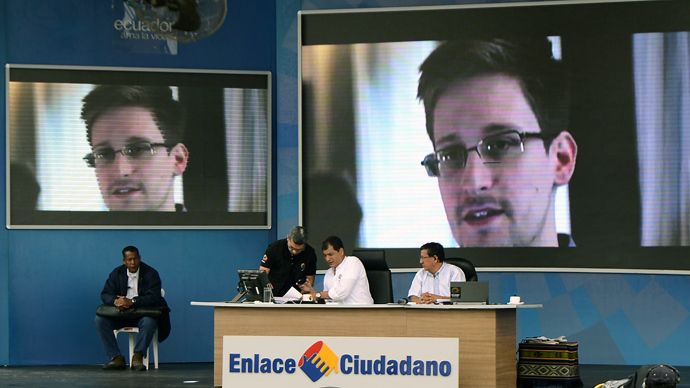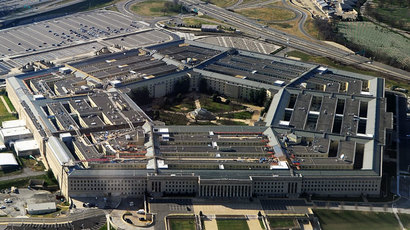'Tensions don't exist': WikiLeaks refutes media reports about 'Ecuadorean disarray'

WikiLeaks says there are no tensions between Julian Assange and Ecuadorean government as it responded to media reports claiming Assange’s role in Edward Snowden’s case "has raised hackles" among Ecuadorean officials.
“The story is spun to be about tensions that don't exist,” WikiLeaks posted on its Twitter account in response to the article that appeared in the Wall Street Journal on Friday. “Hacked/intercepted emails in relation to an NSA spying story. Talk about missing the obvious,” the tweet read.
Is the NSA hacking/intercepting the Ecuadorean government in response to #Snowden asylum claim? http://t.co/sdwhLJuiCV
— WikiLeaks (@wikileaks) June 29, 2013
The Wall Street Journal leaked diplomatic correspondence, which
they claimed had been obtained by Spanish-language broadcaster
Univision Networks and “reviewed by them”.
“Diplomatic correspondence that appears to shed light on the
mixed signals from Quito over the American fugitive’s fate,”
the newspaper report reads.
Partially published emails show that Ecuadorean officials and
diplomats privately discussed the conflict around Snowden and
more precisely the role of WikiLeaks founder Julian Assange in
this case.
“Mr. Assange's role has raised hackles among Ecuadorean
officials,” the newspaper concluded, giving as proof some
quotes from the emails of Ecuadorian diplomats. It says there
is “disarray within the Ecuadorian government” that is
“complicating the outcome” of Snowden’s asylum bid.
According to the correspondence, Ecuador's ambassador to the US,
Nathalie Cely, told presidential spokesman Fernando Alvarado that
the WikiLeaks founder has been overshadowing Quito's role in the
Edward Snowden case.
"I suggest talking to Assange to better control the
communications. From outside, [Assange] appears to be running the
show," the message read.
At the same time, in a message attributed to Assange sent to
Ecuador's foreign minister, Ricardo Patino, and other top
officials, the WikiLeaks founder reportedly apologized "if we
have unwittingly [caused] Ecuador discomfort in the Snowden
matter." In the note, Assange allegedly also offered
Ecuadorean high-ranking officials advice on how to manage the
public relations side of the crisis.
"There is a fog of war due to the rapid nature of events. If
similar events arise you can be assured that they do not
originate in any lack of respect or concern for Ecuador or its
government," the note read.
Assange, according to the note, praised Ecuador’s stance, but
suggested the government hire an English-language spokesman.
"Someone needs to speak in relation to Mr. Snowden's wishes
and views. In some cases, it is likely to be difficult for the
Ecuadorean Ministry of Foreign Affairs to take on this role, due
to the need to display its neutrality and formality in the
matter," the note read.
The disclosed correspondence has also revealed that Ecuadorean
officials apparently were aware of a controversial temporary
travel document, the so-called, “safe pass” that Fidel Narvaez,
consul at the embassy in London, issued for Snowden and that
President Rafael Correa said was “unauthorized”.
The President said that even if such a document existed, "the
person who issued it will be totally without authority and [the
document] would have no validity."
Nevertheless, the Univision Network claims to have established
that the Ecuadorian diplomat Narvaez issued the travel document
at the President’s request and forwarded it to Presidential legal
adviser, Alexis Mera.
"Dear Alexis, I am responding to your request," The WSJ
cited the note from an address bearing Narvaez's name. The letter
also allegedly included a copy of an Ecuadorian “safe pass” in
Snowden’s name.
Another email from the same account, dated Wednesday and
addressed to the legal adviser as well as to a presidential
spokesman, reportedly said: "I trust you received the
requested document yesterday."
Univision also claims that the notes evidence that Narvaez also
spoke to President Correa about what he called "unique
circumstances" of the asylum.
President Rafael Correa responding to the leak by the newspapers
has accused the media of spying on Ecuadorean officials. He also
stressed that the corrupted media power is the worst weapon that
mankind has invented.














